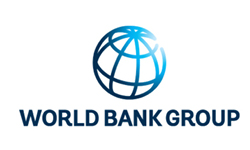Publications
Filter by
490 results found

This paper provides an overview of the IaDB-designed approach to monitoring rural water supply service delivery.



Overall, the study has taken a broad approach to defining OA - going well beyond the minimalist notion of simply guaranteeing legal access to the grid for generators and wholesale buyers.



This publication consists of analysis on the relationship between GDP growth and traffic growth and converting emerging market growth into investment opportunities.


This publication draws on the Private Sector Participation (PSP) experience of four emerging economies Brazil, Peru, the Philippines, and Turkey based on in-depth case studies by Energy Sector Management Assistance Program (ESMAP).

This report evaluates recent developments regarding public-private partnerships (PPPs) in Latin America.

BCG has identified a series of best practices that underlie successful PPPs.

This second report of the Business Working Group, \"Managing transnational infrastructure programmes in Africa - Challenges and best practices\", identifies the key hurdles that have to be overcome.


This PPP checklist is an extension of the initial framework.



The Framework provides systematic structure for proactively disclosing information pertaining to PPP Projects.



This report addresses the critical question: how can the public and private sectors build successful partnerships?



A G20 report prepared by the Global Infrastructure Hub reviewing the extent to which Multilateral Development Banks (MDBs) create incentives within their organisations to crowd-in private finance to fund public infrastructure.


This book discusses in detail the issues and challenges associated with infrastructure connectivity in Asia.

This policy brief outlines promising ideas to attract instiutional investors to pay for infrastructure they have not convinced pension funds or affluent individuals to invest, especially in emerging economies with untested issuers, The “tax-kicker” bond being proposed here could solve this issue.


This document is the fifth edition of an informational tool and benchmarking index that assesses the capacity of countries in Latin America and the Caribbean to carry out sustainable public-private partnerships (PPPs) in infrastructure.


This paper exploits variations in the timing of telecommunications reforms across Europe to analyze the relationship between the rise of alternative work arrangements and the emergence of the Internet, which sectors are most impacted by the internet is also reviewed.

This report provides an analytical framework to understand the fundamental institutions of good telecommunications regulation and analyzes the governance of telecommunications in Latin America and the Caribbean.

This report includes the analysis of global Information and Communication Technologies (ICT) and electronics value chains, an assessment of Ethiopia’s current and potential participation in these regional and global networks, and an analysis of the country’s competitive positions in specific segments of the sector.

The study provides a quantitative analysis of the potential gains that would stem from improving efficiency in infrastructure spending in Latin America and the Caribbean.

This compendium of twinning arrangements and country experiences highlights successful partnerships formed under ADB's Water Operators Partnerships (WOPs) Program.

This is a study in 22 low- and middle-income countries in Asia revealing a strong positive relationship between social protection spending and health outcomes.



